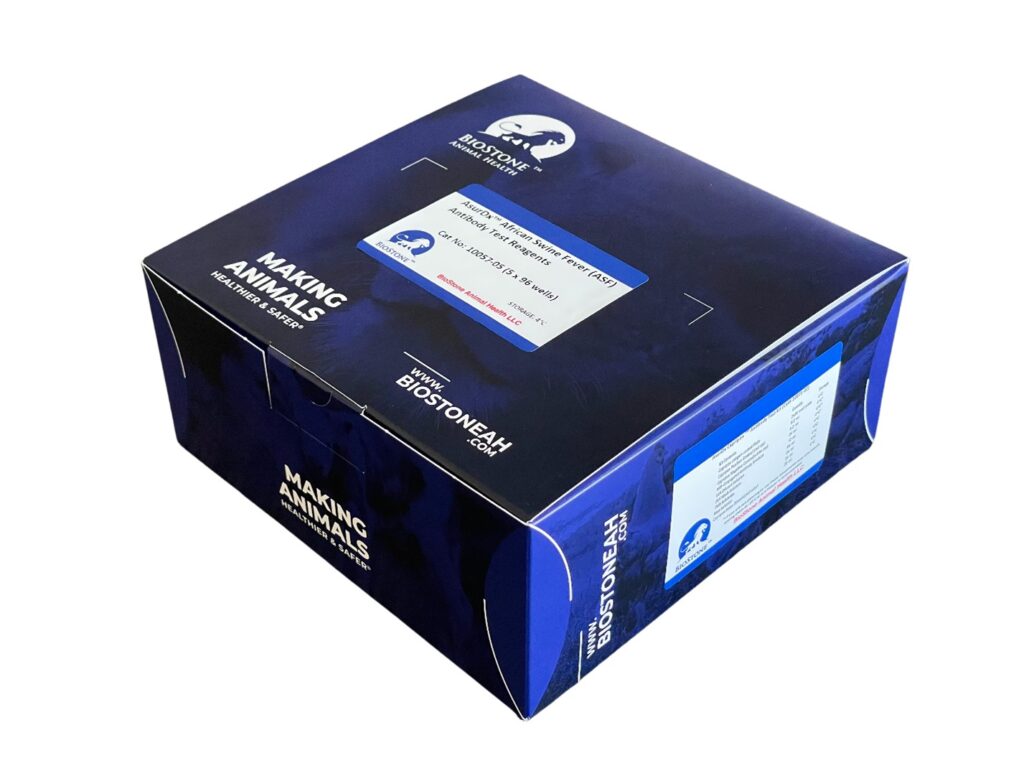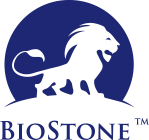AsurDx™ African Swine Fever (ASF) Antibody bELISA Test
The AsurDxTM African Swine Fever (ASF)Antibody bELISA Test Kit is designed for the detection of pig antibodies specific to African Swine Fever virus.

Feature
- Detects ASF antibodies in pig serum/plasma;
- Procedures last less than 75 minutes;
- Provides a simple, rapid, sensitive and cost-effective blocking enzyme-based immunoassay (ELISA) screening method
*Availability/Distribution: Product is designed and developed by BioStone US Texas headquarter and manufactured/assembled by BioStone oversea subsidiaries or partners. Currently, the product is only available outside of the USA. Regulatory requirements vary by oversea countries; the product may not be available in your geographic area.
Specification
| Method | Colorimetric blocking ELISA |
| Coated Antigen | ASF antigen-coated Plate |
| Incubation Time | 75 minutes |
| Storage | At least 12 months |
| Specificity | ASF specific pig antibodies |
Order Information
| Catalog Number | 10057-02 | 10057-05 |
| Plates | 2 plates | 5 plates |
| Reactions | 192 | 480 |
| Plate Format | 12 X 8-well strips | 12 X 8-well strips |
About Disease
African swine fever (ASF) is a severe viral disease affecting domestic and wild pigs. This transboundary animal disease can be spread by live or dead pigs, domestic or wild, and pork products; furthermore, transmission can also occur via contaminated feed and fomites (non-living objects) such as shoes, clothes, vehicles, knives, equipment etc., due to the high environmental resistance of ASF virus. Historically, outbreaks have been reported in Africa and parts of Europe, South America, and the Caribbean. More recently (since 2007) the disease has been reported in multiple countries across Africa, Asia and Europe, in both domestic and wild pigs.
African swine fever virus is a large DNA virus of the Asfarviridae family, which also infects ticks of the genus Ornithodoros. Although signs of ASF and classical swine fever (CSF) may be similar, the ASF virus is unrelated to the CSF virus. Acute forms of ASF are characterized by high fever, depression, anorexia and loss of appetite, hemorrhages in the skin, abortion in pregnant sows, cyanosis, vomiting, diarrhea and death within 6-13 days (or up to 20 days). Subacute and chronic forms are caused by moderately or low virulent viruses, which produce less intense clinical signs that can be expressed for much longer periods. Chronic disease symptoms include loss of weight, intermittent fever, respiratory signs, chronic skin ulcers and arthritis.
ASF may be suspected based on clinical signs but confirmation must be made with laboratory tests, particularly to differentiate it from CSF.
